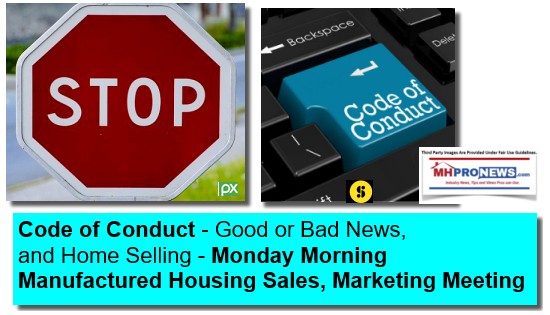
To do a good job of marketing and selling, one must first have a sense of the broader, and local market elements. We’ll share some examples today that are essential for a marketing or sales professional in manufactured housing to understand in order to be effective with qualified prospects. We note that in all of our coaching sessions, good ethics and customer satisfaction must be understood as the given background, and the goal must be for the good of all.
Crain’s Detroit published a story that explained just how far manufactured housing nosedived in their state from the peak of 1998, until the recovery from the bottom hit in 2009 began in 2010. While it has positive elements, that report also raises questions for a savvy shopper or investor.
The Urban Institute did a report in January on manufactured homes, which was largely positive for the manufactured home industry, at least by mainstream news standards.
Several mainstream media (MSM) outlets have been spotlighting the need to protect manufactured home communities from destruction, because they are so important for affordable housing. We’ll plan to spotlight one of those, sent to us as a news tip, hopefully this week here on the Daily Business News.
The first takeaway is that there are some positive news stories carried by MSM and by third party researchers. These are examples of the kinds of stories industry professionals should prefer to see more of – and it is in part, up to pros like you – to make that happen in your market(s).
That said, the sad reality is that beyond press releases, most media coverage about our industry tend to be negative. Ignoring that reality costs the industry billions of dollars a year in new HUD Code manufactured home sales. That means, mostly negative media coverage likely costs your location millions of dollars a year in additional manufactured home sales that your business would otherwise make.
The two screenshots of Google search results below are recent examples. See for yourself the ratio of bad news to good news stories.
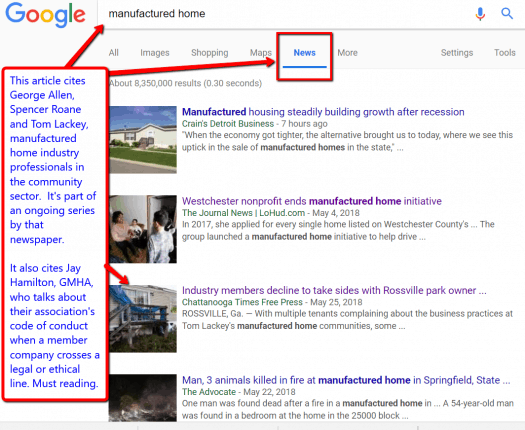
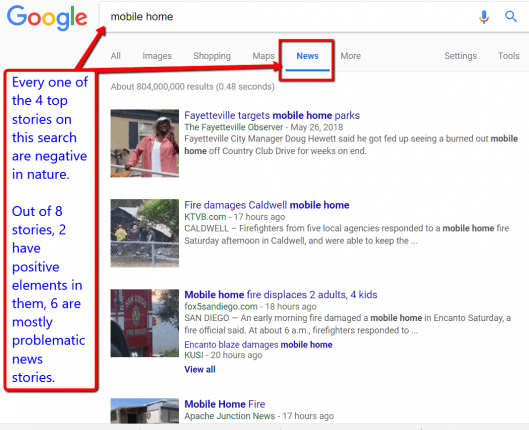
That in a nutshell explains a significant part of why manufactured home (MH) sales are still at historic lows, in spite of a raging affordable housing crisis. But for the savvy MH marketer, that’s opportunity in disguise. Keep in mind that the MH Industry squandered a historic opportunity in the late 90s and early 2000s. We’re being given another such moment in history. Let’s make the most of it, shall we?
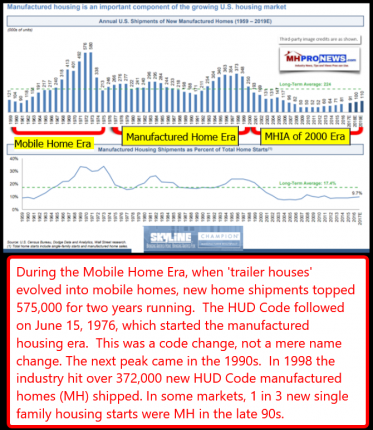
Story Telling, Defining Yourself, Media Engagement, and Code of Conduct
To tee this up, as a volume retailer for many years with happy homeowners, I never waited for someone else to define my business or my products. I didn’t wait for an association, a manufacturer or anyone else to do what our team could do best.
That’s not to say that associations, builders or other third parties can’t play a role. Indeed, they can and should. But I didn’t hold my breath, waiting for that to happen.
Because if you or I’m waiting for someone else to define and boost business, what if they delay? What if they do a poor job?
We set sales records, and hit the top ½ of 1 percent of all retailers in the nation by making things happen. We synergized with others, as much as possible, but we also did what we needed to do, come rain or shine.
So, akin to what Sam Landy, president and CEO of UMH Properties told MHProNews, we did our own marketing. It was wildly successful, and that occurred during tough times when dozens of new home retailers in our state vanished.
The are many beautiful aspects to manufactured housing. One such point – if you make it appealing in your market(s) – is this. Affordability is always going to have a clientele. Nor does affordability have to be the lowest rung on the ladder client. Good times, or bad times, a motivated retailer, community, developer, or producer, can sell, sell, sell. They can do so honorably, with good CSI, and happy homeowners who send their friends.
After my first few years in the manufactured home business, I learned by trial end error how to successfully engage the media. Do that in your market, and forge that habit.
Example
Here’s an example of a radio show I was recently invited to do. This was for a regional talk radio station, so imagine this in your market.
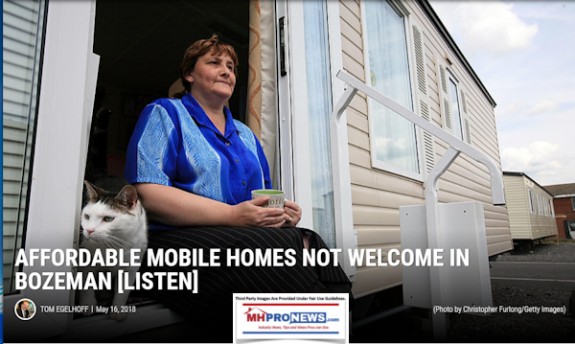
This part of the radio show is about 20 minutes on air, with maybe half of that – near the middle – included me. If you listen carefully, every caller had something good to say about manufactured homes. Even though the others on the air may have misused the terminology, I hit key points using the correct industry lingo, while also explaining briefly the industry’s evolution, and appeal to all economic groups.
Click the arrow to play back the audio.
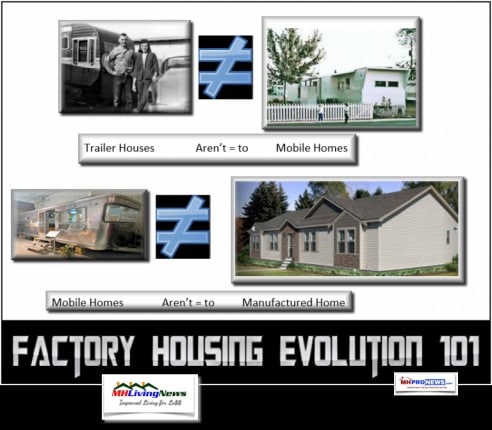
I’ve never stopped reading or learning about the industry, and how it fit into the broader housing market. We use that with our coaching clients, and with publishing.
Rephrased, we practice what we preach.
Why? In the long run, it works best. Short-term thinking produces short-term results.
Code of Conduct
The mainstream media story linked here makes an important point, and this is one that associations can, and ought to play a useful role in.

Jay Hamilton, of the Georgia Manufactured Housing Association (GMHA) would not make a specific comment to that media about a specified series of bad-news stories that involve one or more members. But he did speak to the reporter (a plus), and Hamilton explained to the reporter what the GMHA’s ethical principles are (another plus).
Hamilton spoke about the GMHA’s code of conduct for members. That’s something members stipulate to, when they join the association.
When a code of conduct is enforced in the way the GMHA executive director outlined, arguably that would make it clear to readers that the majority of the industry – or at least that membership organization – care about honest business practices.
That in turn is good for honorable association members.
But if an association fails to take action against a member that crosses a line who won’t repent, its arguably harmful to all.
The code of conduct should be rigorously enforced, regardless of who it is.
Mistakes happen. Corrections can and should be made. When they aren’t, let the members or board vote to expel an unrepentant offender for cause. If that became a habit, anywhere that took place would – over time – would likely see more sales growth among member companies. Because consumers want ethical companies to do business with.
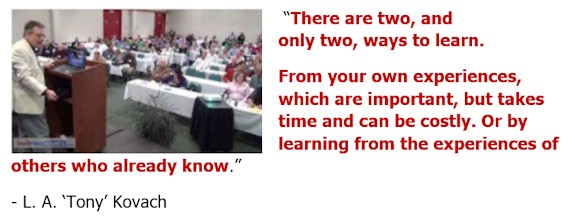
Do your best. Don’t wait for others. If you are part of an association, and bad news strikes about a member who won’t repent or do right by their customers, press for an enforcement of the code of conduct. Enough said for today. ## (Manufactured housing related marketing & sales news, analysis, and commentary.)
(Third-party images are and content are provided under fair use guidelines.)
Related References:
‘You Are Either Clayton Homes, or You’re Not’ – Monday Morning MH Sales Meeting
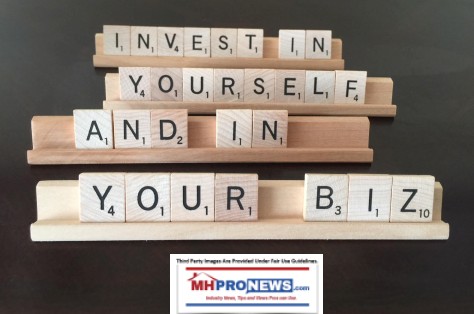
 By L.A. “Tony” Kovach – Masthead commentary, for MHProNews.com.
By L.A. “Tony” Kovach – Masthead commentary, for MHProNews.com.
Tony is the multiple award-winning managing member of LifeStyle Factory Homes, LLC, the parent company to MHProNews, and MHLivingNews.com.
Office 863-213-4090 |Connect on LinkedIn:
http://www.linkedin.com/in/latonykovach
Click here to sign up in 5 seconds for the manufactured home industry’s leading – and still growing – emailed headline news updates.


























